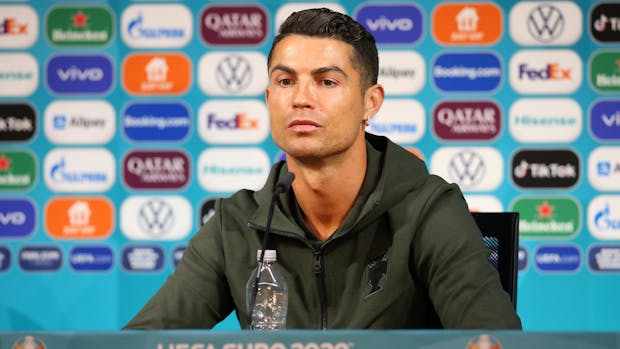Cristiano Ronaldo starts a movement for all brands

Cristiano Ronaldo starts a movement for all brands
Cristiano Ronaldo does not like sugar. he made it pretty clear by removing bottles of Coca-Cola from his presence during a press conference recently, recommending water instead. after the Portuguese superstar’s snub, the beverages giant lost $4 billion in market cap. for ~$250 billion Coca Cola, it’s not exactly eye-watering, but it does signal how people across the world care more about their health and the environment. they are also choosing their brands accordingly.
the new trend
the change has been slow and deliberate over the past few years. But it has started to bear fruit. Oatly, a vegan food maker backed by Oprah Winfrey, debuted on the public market at a valuation of over $10 billion. its tacky ad, where the CEO of the company Toni Peterson sang out of tune on purpose, at the Superbowl, only shone more of the spotlight on it.
it’s not just new companies that are waking up to this new trend. Earlier this month, Nestle had to acknowledge that nearly 30% of its portfolio did not meet health standards. the company has promised to become healthier.
closer to home, Indian brands have rediscovered their roots. Slurrp Farm, primarily focused on encouraging children to eat healthier through age-old recipes, raised $2 million in Series A funding. Naturevibe Botanicals claims it makes all of its revenue by primarily selling organic superfood. many brands such as diet-friendly YogaBar, superfoods-infused tea maker Vahdam, and many others are carving out a space in the Indian market.
it’s a universal language
this trend is not limited to food and edibles. it’s wellness too. consumers are turning to eco-conscious clothing and cosmetics brands that have been supercharged by the direct-to-consumer (D2C) wave. VCs are tuned in, with The Moms Co., for example, picking up $8 million in its series B funding last year.
technology is undergoing a green revolution as well. electric vehicles are the biggest leap for automobiles in over a century, and traditional auto giants are scrambling to catch up to the likes of Tesla. big oil companies are paying influencers to vouch for them. even cryptocurrency is not spared the pressure to go green.



